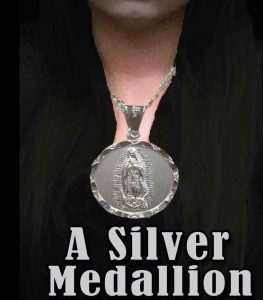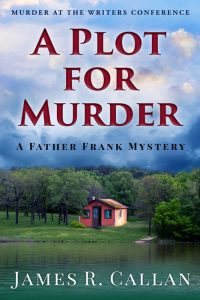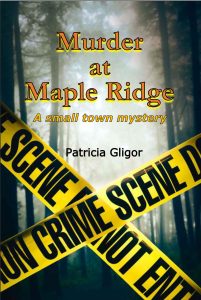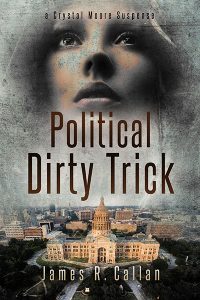A couple of weeks ago, I sent a scene that was cut from A Silver Medallion to several friends. The response was gratifying to say the least. They not only liked it, but questioned why it had been left out. They felt it was a powerful scene. It’s a little long for a blog, but I wanted to share it with you. And I’d love to hear your reaction to it. Rosa has been found in a shed at Eula’s house.
Crystal began again the painstaking task of discovering what had brought this beautiful young Mexican woman to Eula’s home in the piney woods of East Texas. Gradually, in a mix of Spanish and English, her story emerged.
She was twenty-three years old and until a year ago, she and her husband, Miguel, had been living in Santiago, Mexico. They were anxious to start a family, “to make niños,” she said. But neither could find a decent job. They had no training and when they did get work, often they earned no more than fifty pesos a day.
Crystal whistled. “Fifty pesos! That’s about five dollars. A day. Can you believe that, Nana?”
Rosa smiled self-consciously and continued. She and Miguel lived with her parents, and had only a two by three-meter room to call their own.
One day, Federico, a man they had seen around Santiago but did not know, offered to buy them a beer—a luxury they rarely had. They accepted. Inside the dark cantina, the three talked about the town, the weather, and work. When Miguel complained that good jobs were impossible to find, Federico replied that much money was to be made in the United States. He spoke of making ten, fifteen, even twenty times as much as they could make in Mexico.
“Federico say he has friend who make thirty times more than Miguel make in Santiago.”
Rosa looked from Crystal to Eula, as if asking them to understand. After a moment, Rosa continued her story.
For several days, she and Miguel could think of nothing else. At night, huddled together on their tiny bed, they would whisper about going to the United States, making lots of money, then lots of babies. Maybe someday they would buy a car, maybe have a house all their own. They laughed, thinking of the possibilities. Then morning would arrive, and as they ate breakfast of tortillas and beans in the kitchen with her parents and her two brothers and three sisters, reality would set in.
Miguel would go out and try to find work. Most days he got nothing. On lucky days, he might make sixty pesos. When Rosa could not find work, she would help her mother wash clothes in the river, pat out tortillas, or tend their small garden.
Then at night, wrapped in each other’s arms, Rosa and Miguel would grin as they talked about making twenty or thirty U.S. dollars for just one day. If they both worked, maybe even fifty dollars. That would be more than 500 pesos in a single day! They would giggle and hug each other tighter. Such a large amount was not possible, but it excited them just to imagine such things.
Rosa grew quiet and gazed out toward the lake. A cool breeze carried a single, golden leaf to the edge of the veranda. After a minute, she started again.
Rosa and Miguel wanted to talk to Federico again, to ask him more about work in the United States, but they would need to return his generosity. They spread all their money on the bed. They had enough pesos for two beers. They should not spend it on that, but searching each other’s eyes, they nodded and left the house to look for Federico.
They found him near the cantina and Miguel offered to buy him a beer. Inside, Rosa declared she was not in the mood for beer; she really wanted some cool water. As Federico drank, they asked him how his friend got to the United States. Federico said to get there and find a job was very expensive.
Rosa squeezed her eyes closed to hold back the tears. They had no money. They would never have enough.
Miguel took a sip of beer, then raised his eyebrows and looked at Federico. “Your friend. Was he rich before he went?”
“No. He was as poor as you, my friend. A man paid his expenses.”
Miguel stared at Federico. “I wish I knew such a man.”
A week later, Federico stopped them on the street.
“Señor Jose de Allende knows a man in Texas who needs a maid.”
Rosa and Miguel looked at each other, grins spreading across their faces.
Federico smiled and continued, “Señor Jose will pay all the expenses to get Rosa to Texas.”
Rosa wanted to jump up and down, scream for joy, and give Federico a hug. But that was not done in Santiago. She tried to sound calm and simply asked, “When would I go?”
“You would leave in four days.”
“Can I go with her?” asked Miguel. “I can look for work after we get to Texas?”
“No. You will stay and work for Señor Jose until Rosa saves enough money to repay Señor Jose. And both of you must save money to pay for Miguel’s trip to Texas.”
“What is the cost? And how much will Rosa make?” Miguel asked.
“Señor Jose has that information. You can ask him before you leave.”
For days, their waking hours were filled with dreams of Rosa working in Texas, and calculating how much she might save. She would buy no clothes, no shoes. She would eat little and spend less. She would save everything possible. She would save money faster than anybody ever had. Miguel would come to Texas soon.
For just a moment in the fading light on Eula’s veranda, a sparkle flitted in Rosa’s dark eyes. “We are much happy. We talk of nothing but go to Texas. We see pictures of Texas on TV in cantina. All people has car, house. I say I keep all my pay, spend nada. Soon mi esposo come to Texas.” As quickly as the shine had come to her eyes, it vanished, replaced by a vacant stare.
“So, this Jose guy arranged it?” asked Eula.
Rosa nodded.
“How did you get here?” Crystal asked.
“It is horrible. We drive two days, five of us in back of car. We only stop for petrol, get tortillas and beans. They make us do bad things. Next night, they put us in boat to cross river. Say make no sound or Americans shoot us. I am so afraid. We are too many for boat but they put all in. I think it go down in water. I no can swim. I want to run, go back to Miguel. But I think of money I make in Texas. Think when my Miguel come to me. I bite my lip, make no sound.”
Crystal bit her lip, trying to hold back the tears. The fear tasted bitter, fear of being packed in a vehicle headed for an unknown destination in a country you had never seen, then forced into an overcrowded boat at night, unable to swim. All manner of sinister situations popped into Crystal’s mind. How desperate Rosa had to have been to risk all on such an uncertain venture.
Rosa told how they were pulled out of the boat, then put them in the back of a truck. She could hear them snap a lock shut. The truck lurched off, throwing those in the back first to one side and then the other.
“We have no light. I can see nada. Smell is asqueroso. After many hours, truck stop and I hear man open lock. When door open, light is so bright we no can look. Sun is very hot. We are in little park with baño. They give us cold hamburger, put us back in truck. They lock door and drive more hours. The heat–I think I pass out. We have no water.”
The Mexican woman closed her eyes and continued in a whisper, “Felipe start to shake. His skin is muy hot, but he say he is cold. We yell, hit wall with fists, but truck no stop.”
Eula shook her head and sighed. “My God.”
Eyes still closed, Rosa’s voice grew even softer and Crystal had to lean close to hear. “When we stop, we carry Felipe out. We are at small stream. We try give him water. But he is no breathing.” She made a small sound, as if she were trying to catch her breath. “Man say he is dead. Put us back in truck. I no know what they do with Felipe.”
Rosa stared down at her hands, clutched together in her lap.
Crystal shivered in horror-struck silence. Felipe died of heat stroke and the smugglers just dumped his body.
“Damn murderers,” Eula muttered.
For a long time, the three sat in silence. Was that the end of the story? Crystal was almost afraid to ask, but she had to know. “What happened next?”
For awhile, Rosa remained silent. Then, without looking up, she continued in a voice now devoid of feeling, “We stop. Door open and we get out. We are in building. They make us take off clothes. All clothes. Antonio say he no do it. Señor Blackwood hit him on head with piece of metal, drag him off. I no see Antonio again. I think he is dead. They take . . .” Her eyes closed.
Crystal and her grandmother exchanged glances, but neither uttered a word.
Rosa continued. “Things. Man give us new clothes. We dress. Others go back in truck. I stay there.”
The sun had slipped below the horizon and darkness sifted down through the trees to envelop the landscape. Light from the living room cast a soft glow on the veranda. Crickets began their nightly serenade, while frogs added the bass notes. Night birds called to one another.
Under normal circumstances, Crystal would sit back and enjoy the night sounds of The Park. Tonight, she tuned them out, waiting for Rosa to finish her story, wanting to hear it—and afraid to.
When she could stand the silence no longer, Crystal asked, “Where was that? Where did you stay?”
“At house of Señor Blackwood. I stay there, until ayer.”
Crystal shuddered. Being forced to undress in front of strangers … to suddenly have no control over your life.
What work did Rosa do? How long did she stay? Did Blackwood demand sexual favors? How did she get away and how did she get to The Park? A thousand questions swirled around in Crystal’s mind, all demanding answers.
The young woman seemed so distraught, so on edge, the wrong question might destroy any chance of hearing the rest of the story, perhaps cause her to run away from The Park. That would be easiest on Crystal¾and Nana. But, the Mexican woman had suffered so much already. She needed their help. Besides, Crystal was so far into this mystery she had to find some answers.
“How long, quanto tiempo, did you work for Mr. Blackwood?” Crystal asked.
“Eleven meses,” Rosa said.
“Eleven months!”
“Why’d you stay so long?” Eula did not share Crystal’s fear of frightening the woman into silence, or flight. “I’d have said, ‘So long Blackheart. I’m out of here.’”
“Were you free to leave?” asked Crystal.
Rosa furrowed her brows and said nothing.
Crystal tried again. “Would Mr. Blackwood allow you to leave?”
Rosa shook her head. “No. He say, I leave, or talk to people, Miguel have accident.”
A few seconds passed before the full meaning penetrated Crystal’s understanding. Rosa could not leave without putting her husband in serious danger. Crystal clamped her mouth shut lest her anger erupt in a scream.
Eula leaned toward the Mexican woman. “How much did you save?”
Vertical grooves formed between Rosa’s black eyebrows. “No entiendo.”
Unlike her usual delivery, Eula now spoke slowly, pronouncing each word carefully. “In eleven months, how much money did you save?”
Eula raised her bushy, gray eyebrows at Crystal.
Crystal took a deep breath, trying to calm herself, and turned to Rosa. “Why did you save nothing? How much did Mr. Blackwood pay you?”
“He say he pay me minimal wage.”
“I’d bet on that,” muttered Eula.
“Was it ‘minimum’ wage?” Crystal asked.
“Si. Minimum wage. But when I asked him for my money, he say he take money for food I eat, room I sleep in.”
Crystal and Eula exchanged looks, but said nothing. Even at minimum wage, she should have made over ten thousand dollars.
“I tell him I eat less. Other time, he say he take money for clothes.” Her shoulders, her mouth, her very spirit, sagged. “Sometime I get five dollars. One time I get ten dollars.”
Crystal frowned. “Five dollars? For a whole day?”
Rosa shook her head. “No day. Un mes.”
“Five bucks for a month. What’d you do for this Blackwood guy?” Eula snapped.
Crystal had wanted to ask the same question, but hesitated. She held her breath, afraid of the answer, angry before it came.
“I do all things. I cook. I clean house. I wash clothes. Plancha.”
“Iron,” Crystal translated for Eula.
“I fix yard, grass. I wash car. I do all things.”
Crystal leaned toward Rosa. “You did all these things and you never got more than ten dollars for a whole month?”
Rosa nodded.
Eula swore under her breath. “Damn crook. He ought to be hung up by his—“
“Nana!”
“She won’t know what I’m saying. And anyways, he ought to be.” Eula softened her tone and leaned toward her guest. “Why’d you leave yesterday?”
Rosa turned away and this time, silent tears started to run down her cheeks. Crystal’s eyes misted over and she wanted to take the young woman in her arms and rock her. Instead, she looked toward the tranquil lake, hoping it might uncoil her stomach, shield her from the anguish permeating the veranda like a dense fog.
Darkness had descended, and off to the left, a slender crescent moon had emerged from behind the pine trees. A thin cloud sliced across the upper part of the silver moon. It appeared like a dagger. A dagger aimed at Rosa.
“Three days back, woman come to work at house. She come from Mexico. We talk. She hear of Miguel, mi esposo. She tell me . . .” Her voice broke and moments passed before she could continue. “. . . he is dead.” The tears started again.
“Dead?” Crystal felt like someone had hit her in the chest. “What happened?”
Rosa wiped her eyes and opened her mouth, but the crush of emotion prevented words from forming. A minute passed, and then another before she could answer. “Lucita tell me he get hurt working at hacienda. Jose no let him go to doctor. Two weeks, he die. She tell me they bury him . . . el mes pasado.”
“Last month!” It exploded almost as a scream. Crystal could feel the vein in her neck throbbing.
She slid over and put her arms around Rosa. The young woman, ramrod straight and somewhat distant until now, melted against Crystal as sobs shook her small body.
Crystal rocked the swing slowly, gently patting Rosa. The woman’s sobs gradually subsided, but an occasional low moan verified her continued grieving.
Crystal held Rosa tightly, both to give the young Mexican woman comfort and to ward off the sudden chill seeping into her. Crystal was not married yet. But she had lost both parents when she was seven and her pain had seemed hopeless for such a long time. No one could comfort her. No one could comfort Rosa.
And then, the chill was gone, replaced by a rising heat. It enveloped Crystal’s stomach first. It moved to her head so that her face felt feverish and she rubbed a hand across her brow, expecting to find beads of sweat. Her breathing accelerated, now rapid and shallow, and her jaw twitched as she clenched her teeth. This Blackwood person had kept Rosa a prisoner, locked in by threats and fear of what would happen to her husband if she left. And when Miguel died, this . . . creature . . . didn’t even tell Rosa.
Bile rose in Crystal’s throat. That Rosa ever found out Miguel was dead was an accident. Jose and Blackwood did business together. Blackwood undoubtedly knew of Miguel’s death long before Rosa found out. But of course he didn’t tell her. That would break the lock on her chains. His slave might escape.
Crystal’s nails dug into the palm of her hand.
Somehow, Blackwood must be stopped.
A Silver Medallion, in paperback and digital formats. http://amzn.to/1WxoEaF
“A Silver Medallion is a gripping, action-packed adventure from talented author James Callan.” NY Times Bestselling Author Bobbi Smith. “A Silver Medallion reads like a gold-medal thriller.” BookLife Prize in Fiction. Readers’ Favorite Book Award Winner.
I welcome your comments. Thanks, jim
 And among writers you certainly have differing opinions. One such case is the question of what is more important in a novel: character or plot. I’m not going to take sides – exactly. Today, I’m going to talk about characterization. Next week, I’ll talk about plot. And beyond that, I’ll discuss another important aspect of the novel. But, today, it’s character.
And among writers you certainly have differing opinions. One such case is the question of what is more important in a novel: character or plot. I’m not going to take sides – exactly. Today, I’m going to talk about characterization. Next week, I’ll talk about plot. And beyond that, I’ll discuss another important aspect of the novel. But, today, it’s character. You’d like for your reader to imagine living inside your character’s skin. You want the reader to say, “Yeah, I’ve been there.” Or, “I can see myself in that position.” This implies that the reader knows enough about the leading character to able to do this. So, the writer must show the reader, sooner or later (but not too late) what makes this character tick. Many suggest that the reader meet and get to know something about your protagonist in the first chapter—if not on the first page. The reader cannot establish a relationship with the protagonist without knowing what the character thinks. Reading about what he or she does, but not why she does it, will not likely draw the reader into a close relationship.
You’d like for your reader to imagine living inside your character’s skin. You want the reader to say, “Yeah, I’ve been there.” Or, “I can see myself in that position.” This implies that the reader knows enough about the leading character to able to do this. So, the writer must show the reader, sooner or later (but not too late) what makes this character tick. Many suggest that the reader meet and get to know something about your protagonist in the first chapter—if not on the first page. The reader cannot establish a relationship with the protagonist without knowing what the character thinks. Reading about what he or she does, but not why she does it, will not likely draw the reader into a close relationship. It could be a goal line, a finish line, an imaginary line, or a line between two countries. It makes no difference. It is the goal she has set for herself. She has worked hard to get close but there are so many obstacles, and they seem to grow bigger and more difficult the closer she gets to that line. And suddenly, it doesn’t look like she will make it. Now, the reader actually may think it is not the thing to do. It’s too dangerous, or it’s likely to cause grave physical damage. If she doesn’t stop now, she could end up dead, or in the hospital. She should give it up. But, it is extremely important to the protagonist, and because it is, the reader is going to back her. “I don’t think you should do this, but if you must, I’m with you all the way.”
It could be a goal line, a finish line, an imaginary line, or a line between two countries. It makes no difference. It is the goal she has set for herself. She has worked hard to get close but there are so many obstacles, and they seem to grow bigger and more difficult the closer she gets to that line. And suddenly, it doesn’t look like she will make it. Now, the reader actually may think it is not the thing to do. It’s too dangerous, or it’s likely to cause grave physical damage. If she doesn’t stop now, she could end up dead, or in the hospital. She should give it up. But, it is extremely important to the protagonist, and because it is, the reader is going to back her. “I don’t think you should do this, but if you must, I’m with you all the way.”
 she reveals how one bit of quirkiness managed to get into her latest novel. It’s a fun read. I think you’ll enjoy it.
she reveals how one bit of quirkiness managed to get into her latest novel. It’s a fun read. I think you’ll enjoy it. One day I had a photo frame on my entrance hall table. I’d recently purchased the frame and hadn’t decided what to put in it yet. The frame came with a photo of a woman in it. One of my sons asked me who it was, and I teasingly said, “That’s your great Aunt Gertrude. She lives in Texas on a guinea pig ranch.” We spun all kinds of stories about the factitious family member.
One day I had a photo frame on my entrance hall table. I’d recently purchased the frame and hadn’t decided what to put in it yet. The frame came with a photo of a woman in it. One of my sons asked me who it was, and I teasingly said, “That’s your great Aunt Gertrude. She lives in Texas on a guinea pig ranch.” We spun all kinds of stories about the factitious family member. book, Wooing Gertrude:
book, Wooing Gertrude: main speaker at a writers conference. But after the opening session and in front of a crowd, Maggie DeLuca, Father Frank’s sister, accuses Granet of stealing her story and says he will pay.
main speaker at a writers conference. But after the opening session and in front of a crowd, Maggie DeLuca, Father Frank’s sister, accuses Granet of stealing her story and says he will pay. is a collection of written works. It can be a collection of poems, plays, short stories, songs, novellas, or excerpts from longer books. These do not have to be related in any way, although often there is a theme associated with the anthology. There is not a real limit on how many – no minimum and no maximum. The works are generally chosen by a compiler, which can be a single person or a committee. An anthology generally contains works by several authors. However, there is nothing preventing an anthology containing various works of a single author. And, today, anthology may be used for a series of TV shows, or recordings of a single group or performer.
is a collection of written works. It can be a collection of poems, plays, short stories, songs, novellas, or excerpts from longer books. These do not have to be related in any way, although often there is a theme associated with the anthology. There is not a real limit on how many – no minimum and no maximum. The works are generally chosen by a compiler, which can be a single person or a committee. An anthology generally contains works by several authors. However, there is nothing preventing an anthology containing various works of a single author. And, today, anthology may be used for a series of TV shows, or recordings of a single group or performer. that royalties will not be paid. Naturally, this must be determined before the call for entries. If the project pays for the expenses of production and a surplus exists, from the beginning those submitting works should agree any profits be used either to fund the next project, or donated to help the library or some other group fostering literacy. If you have high profile authors involved, then the division of royalties should be clear before submissions are sought.
that royalties will not be paid. Naturally, this must be determined before the call for entries. If the project pays for the expenses of production and a surplus exists, from the beginning those submitting works should agree any profits be used either to fund the next project, or donated to help the library or some other group fostering literacy. If you have high profile authors involved, then the division of royalties should be clear before submissions are sought. However, it is best to have one editor. There can be a committee to help during the selection process. But when you are getting down to the final editing, while several may read for possible mistakes, a single person should be making the final decisions. Committees can get hung up with differing opinions and the project can grind to a halt. In the end, one person has to be in charge to complete the project.
However, it is best to have one editor. There can be a committee to help during the selection process. But when you are getting down to the final editing, while several may read for possible mistakes, a single person should be making the final decisions. Committees can get hung up with differing opinions and the project can grind to a halt. In the end, one person has to be in charge to complete the project. Her latest is Small Town Mystery series, Book #2 – Murder at Maple Ridge. She’s had a varied career, including managing a sporting goods department and proprietor of a resume writing service. But her passion has always been writing fiction. Here she talks about the mystery of writing.
Her latest is Small Town Mystery series, Book #2 – Murder at Maple Ridge. She’s had a varied career, including managing a sporting goods department and proprietor of a resume writing service. But her passion has always been writing fiction. Here she talks about the mystery of writing. Which brings me to my newest release: Murder at Maple Ridge. Once again, an old house inspired me. One I’d driven by – and admired – for many years on the way to a park about an hour from where I live. The knowledge I gained working in sporting goods – about firearms and hunting –was invaluable.
Which brings me to my newest release: Murder at Maple Ridge. Once again, an old house inspired me. One I’d driven by – and admired – for many years on the way to a park about an hour from where I live. The knowledge I gained working in sporting goods – about firearms and hunting –was invaluable.
 In Deadly Additive, Donn Taylor named a secondary character who always operated on the edge, Brinkman. An accident? I don’t think so. Ian Fleming gave us some insight into the character of his antagonist in The Richest Man in the World when he named him Auric Goldfinger.
In Deadly Additive, Donn Taylor named a secondary character who always operated on the edge, Brinkman. An accident? I don’t think so. Ian Fleming gave us some insight into the character of his antagonist in The Richest Man in the World when he named him Auric Goldfinger.



